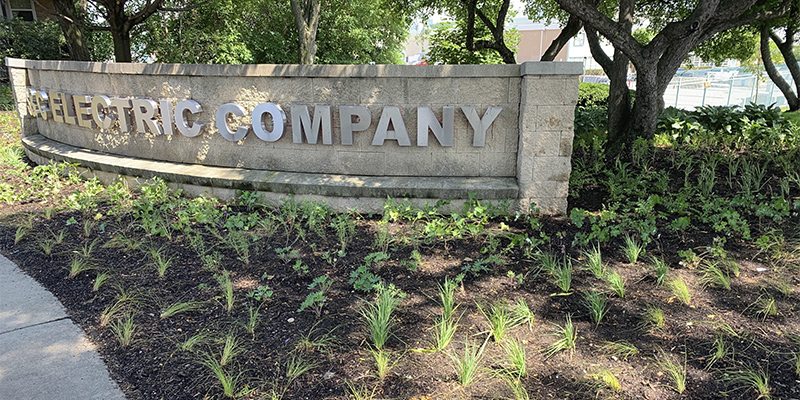Operational Excellence

Demonstrating our commitment to sustainability by embedding it throughout all areas of our operations.
S&C recognizes the ways the energy industry can significantly contribute to protecting our planet and reducing the impacts of severe weather events. We are driven by our guiding principle of Responsible Stewardship and are sensitive to the environmental effects of our business activities. Our approach to decarbonizing operations, diverting our waste impact, and responsibly managing the use of natural resources to enhance circularity is outlined in our Environmental Policy Statement.

Emissions Reduction
S&C mitigates the environmental impact of our operations on the environment through our comprehensive environmental sustainability program, which includes our stated commitment to achieving net zero greenhouse gas (GHG) emissions by 2050. We referenced the Science Based Targets initiative best practices in setting our targets and used the United Nations Sustainable Development Goals framework to develop our strategy. We are pursuing activities associated with Scopes 1, 2, and 3 emissions reductions.
Global GHG Emissions
Energy Efficiency
Energy efficiency is a key component of our decarbonization strategy and our commitment to reducing our environmental footprint. We reduce our emissions through capital improvement projects to drive efficiency, including automation systems, LED lighting, equipment upgrades, green building practices, and electric vehicles (EVs) and charging stations.

Global Electricity Use
Global Electricity Usage Intensity

Waste Management and Diversion
Responsible waste management practices are critical to support our goal to meet and maintain a 99 percent landfill-free status at all global manufacturing sites year over year. Our waste management program focuses on prevention, reuse, recycling, and recovery initiatives, including composting. Our business model is designed to enable a circular economy by reducing waste in operations and optimizing end products for recyclability.
Global Waste Diverted from Landfills
2024 Global Waste Disposal

Air Quality
We manage our emissions of volatile organic compounds (VOCs) and hazardous air pollutants (HAPs) as required by the Clean Air Act and regulated by the U.S. EPA. We have reduced our VOC and HAP emissions in the U.S. by 97 percent and 99 percent, respectively, since the 1990s, thanks to investments in new technology and process improvements. Today’s emissions are well below our compliance requirements and remain negligible.
Water Conservation
We leverage lean manufacturing practices, facility upgrades, shared best practices, and conservation efforts to reduce our water consumption. To reduce our water consumption, we use the following measures at our sites:
- Closed-loop cooling systems, including cooling towers, a dry cooler system, and an evaporative fluid cooler
- Cleaning and inspection enhancements
- Recirculation and recycling processes in operations processes
- Low-flow devices on faucets and bathroom fixtures

Global Water Use
Global Water Usage Intensity
Supply-Chain Management
We partner with suppliers that share our values and commitments to maintain a reliable and responsible supply chain. We prioritize suppliers that pursue continuous improvement and demonstrate focused efforts around diversity and inclusion, human rights, and environmental stewardship.










